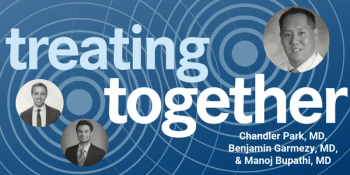
Gene Therapy Shows Encouraging Clinical Efficacy/Safety in BCG-Unresponsive NMIBC
A novel gene therapy is being investigated for the treatment of Bacillus Calmette-Guerin-unresponsive non-muscle invasive bladder cancer, and the preliminary findings signal a high response rate with little toxicity.
EG-70, a non-viral gene therapy, appears to be a safe and well-tolerated treatment for patients with Bacillus Calmette-Guerin (BCG)-unresponsive non-muscle invasive bladder cancer (NMIB), with promising clinical efficacy, according to phase 1/2 findings from the LEGEND trial, announced by enGene, Inc.1
By encoding RIG-I agonists and interleukin 12, EG-70 prompts the innate and adaptive immune systems. In preclinical bladder cancer models, this mechanism of action yielded tumor regression with limited toxicity.
"We are thrilled to announce the safety and clinical efficacy of EG-70 in patients with BCG-unresponsive NMIBC who are facing bladder removal as an alternative," said Jason Hanson, chief executive officer at enGene, in a press release. "EG-70 was designed ab initio as an intravesical monotherapy that would slot directly into current medical practice to provide ease-of-use and increased access to patients. With the initial results providing a clear best-in-class trajectory, we are confident that EG-70 will be the organ-sparing solution that is a game-changer for patients and physicians."
The LEGEND trial is a first-in-human and first-in-class study of EG-70 monotherapy. The study follows an open-label, multicenter, dose-escalation design. The coprimary end points are safety and the percentage of patients with cryptoscopic complete response (CR) at week 48 based on exams, urine cytology, and biopsies. The secondary end points of the study include the number of patients with a dose-limiting toxicity (DLT); CR rate at weeks 12, 24, 36, and 96; progression-free survival; and duration of response.2
Early results were reported for 6 patients with BCG-unresponsive NMIBC who had reached the 3-month efficacy assessment. Of those assessed, 5 patients had a CR to treatment with EG-70, achieving an 83% CR rate.
In terms of safety, no DLTs or serious adverse events (AEs) have been reported in the study patients. The majority of the AEs observed were grade 1 or 2 in severity. Common low-grade AEs included intermittent pain when urinating, urinary tract pain, bilateral serous otitis, increased nocturia, restlessness, and low back pain.
"The responses observed with EG-70 are an important step towards NMIBC patients avoiding radical cystectomy," said lead principal investigator Gary Steinberg, MD, professor, and director at the Perlmutter Cancer Center and Department of Urology Goldstein Urology Bladder Cancer Program of NYU Langone Health, in the press release. "If similar results are observed as the study progresses, I am confident that this novel intravesical monotherapy will make a meaningful impact in the lives of patients with high-risk NMIBC."
The ongoing LEGEND study is actively recruiting patients with BCG-unresponsive NMIBC at treatment sites in Arizona, California, Minnesota, New Jersey, and Texas. Patients are eligible to enroll given they are 18 years of age or older with an ECOG performance status of 0-2, hematologic inclusion within 2 weeks of the start of treatment, hepatic inclusion within 2 weeks, and satisfactory bladder function at screening.
References:
1. enGene announces positive preliminary phase 1/2 data with EG-70 in BCG-unresponsive non-muscle invasive bladder cancer. News release. enGene, Inc. February 8, 2022. Accessed February 11, 2022. https://prn.to/3gWsglf
2. EG-70 in NMIBC patients who are BCG-unresponsive and high-risk NMIBC patients who have been incompletely treated with BCG or are BCG-naïve (LEGEND STUDY). Clinicaltrial.gov. Accessed February 11, 2022. https://bit.ly/3sCinyr


















